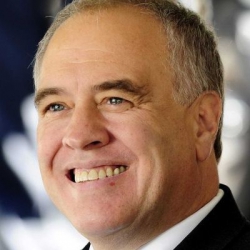New York State Comptroller Thomas DiNapoli released a report on off-track betting on Friday. The report came after a 5-year audit of off-track betting in New York state and the numbers showed a significant decline.
Thomas DiNapoli made suggestions for ways to reverse the decline, but those suggested fixes move the industry further away from the horse racing paradigm. Meanwhile, one of the operators offered their own suggestions for how to make the OTB parlors profitable. The main suggestion was for the state to end “statutory payment requirements”.
Whether anyone’s ideas on changing the trends in the US gambling industries would work remain speculative, because the trends have been against the industry for years.
Declined 25% in a Five-Year Period
Over the past five years, off-track revenues have declined 25% from the previous 5 years, a decrease in $1.2 billion on racing bets. The numbers reflect the years 2009-2013, after the previous report showed the 2004-2008 period.
The rapid loss of revenues is being explained by the effects of market saturation, because gamblers have had more opportunities to wager made available to them. Over the past few years, gamblers could make wagers at the 9 racetracks through Virtual Lottery Terminals or VLTs, which amount to slot machines under another name. Bettors also have the ability to wager at 5 tribal casinos, through the state lottery and multistate lotteries, online in nearby states like New Jersey, and at large gaming venues in Pennsylvania, New Jersey, and Connecticut.
VLTs and Online Gaming Hurt
While some of those forms of gambling existed before, the VLTs and Internet gambling are new inclusions. Off-track betting simply is not as popular as it once was, as players find new methods of gaming.
Readers should understand that the economy was partly to blame for the decline in wagers. The years in the study correlate with the worst years of the Global Recession. No matter what the state of the gaming industry in America might have been in those years, off-track revenues were bound to decline. At the same time, the loss of capital from the racetrack betting industry is a real trend in the United States and has been for some time. Also, a certain amount of losses should have been offset by the inclusion of “dial-a-bet” services, which are used widely in New York state now. Dial-a-bet is telephone wagering, but it can be done with mobile phone. Off-track smartphone betting should have offset some of the losses, but they were compiled into the overall statistical data and it remained bleak.
Dial-a-Bet Numbers
The change was not throughout the full five year period, though. In 2009, dial-a-bet was available in the Capital and Nassau districts, only. By 2013, all five were active, including the Capital district, Nassau, Catskill, Western, and Suffolk districts. One reason for a dip in 2010 can be explained by the telecom company supplying New York City went bankrupt in 2010, but service should not have been disrupted significantly by that bankruptcy process.
In the end, the horse track betting industry is in decline across the USA. Numbers at live races, in the para-mutuel simulcasting industry, or the stand-alone off-track betting (OTB) parlors are down.
Thomas DiNapoli Statement
In his statement on the report, Thomas DiNapoli wrote, “The viability of OTBs is in financial jeopardy. Statutory payment requirements, a downturn in racing interest and major fee increases have each contributed to this plight. As competition for gambling dollars intensifies in New York, the state must reexamine the roles of OTBs. Some localities rely on this revenue to help balance their budgets and already feel the effects of this decline.”
DiNapoli suggested the Suffolk and Nassau counties should open their own slots parlors to increase revenues. He also suggested that all the various off-track betting parlors should come together to negotiate for better rates over their broadcasting rights. This would help alleviate some of the issues.
Catskills Operator’s Statement
One of the regional operators had a different interpretation of the data. The Catskills operator, in a released statement, said the reason for their revenue issues comes down to statutory payment requirements. The statement from Catskills said, “OTBs do not lose money, but in fact, are required to distribute in excess of revenues received.“

